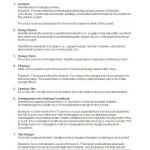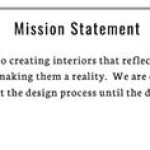```html
Interior Construction Contractor: A Comprehensive Guide
The role of an interior construction contractor is pivotal in shaping the functionality and aesthetics of interior spaces. These professionals manage and execute construction projects within existing buildings, transforming blueprints and designs into tangible realities. They are responsible for coordinating various trades, adhering to building codes, and ensuring the project stays within budget and on schedule. Understanding the scope and complexities of their work is essential for anyone planning an interior renovation or build-out.
Interior construction differs significantly from general construction, which often involves the structural aspects of a building. Interior projects focus primarily on the internal elements, such as walls, ceilings, flooring, lighting, and mechanical systems within the existing structural framework. This specialization requires a unique skillset and a deep understanding of interior design principles, building codes specific to interior spaces, and the challenges associated with working within established structures.
The success of any interior construction project hinges on the contractor's ability to manage various aspects effectively. This includes pre-construction planning, obtaining necessary permits, managing subcontractors, overseeing the construction process, and ensuring quality control. A competent interior construction contractor acts as the central hub, coordinating all activities and keeping the project moving smoothly toward completion.
Key Responsibilities of an Interior Construction Contractor
The responsibilities of an interior construction contractor are diverse and demanding, requiring a multifaceted skillset and a proactive approach. These responsibilities can be broadly categorized into pre-construction, construction, and post-construction phases.
Pre-Construction Phase: This phase involves meticulous planning and preparation. The contractor reviews architectural plans and specifications to understand the project scope, identifying potential challenges and opportunities. They also conduct site surveys to assess existing conditions and identify any unforeseen issues. A crucial aspect of this phase is creating a detailed budget and timeline, outlining the project's financial parameters and schedule. Furthermore, the contractor is responsible for obtaining all necessary permits and approvals from local authorities, ensuring compliance with building codes and regulations. Selecting and coordinating subcontractors is also a key task, ensuring that qualified and reliable professionals are on board for each specialized trade.
Construction Phase: This is the execution phase where the design comes to life. The contractor oversees all on-site activities, managing subcontractors and ensuring work is performed according to specifications and safety standards. Regular progress meetings are held to track progress, address any issues that arise, and keep the project on schedule. The contractor is also responsible for managing materials and equipment, ensuring timely delivery and proper storage. Effective communication with the client is paramount during this phase, providing regular updates on progress and addressing any concerns they may have. Quality control is a continuous process, with regular inspections to ensure workmanship meets the required standards. The contractor also proactively manages change orders, documenting any modifications to the original plan and adjusting the budget and timeline accordingly.
Post-Construction Phase: The contractor addresses any punch list items, resolving any outstanding issues identified during the final inspection. This includes addressing minor imperfections, making necessary adjustments, and ensuring everything functions as intended. As-built drawings are also prepared, documenting any changes made during construction and providing an accurate record of the final project. The contractor also provides warranties for workmanship and materials, offering assurance to the client. Finally, the contractor conducts a final walkthrough with the client to ensure their satisfaction and formally close out the project.
Essential Skills and Qualities of a Successful Contractor
To excel in this demanding field, an interior construction contractor must possess a combination of technical skills, managerial abilities, and interpersonal qualities. These skills and qualities are essential for navigating the complexities of interior construction projects and ensuring successful outcomes.
Technical Expertise: A strong foundation in construction principles and practices is fundamental. This includes a thorough understanding of building codes, construction materials, and various construction techniques. Familiarity with different trades, such as carpentry, plumbing, electrical, and HVAC, is essential for effective coordination and problem-solving. The ability to read and interpret architectural plans and specifications is also crucial for accurately understanding the project requirements. Additionally, knowledge of sustainable building practices and green building technologies is increasingly important in today's market.
Project Management Skills: Effective project management is critical for keeping projects on track and within budget. This includes the ability to plan and schedule tasks, manage resources, and track progress. Excellent organizational skills are essential for managing multiple tasks and priorities simultaneously. Strong problem-solving skills are needed to address unexpected challenges and find effective solutions. Effective budget management skills are crucial for controlling costs and maximizing profitability. Finally, the ability to negotiate effectively with subcontractors and suppliers is essential for securing favorable terms and maintaining budget control.
Communication and Interpersonal Skills: Clear and effective communication is vital for building strong relationships with clients, subcontractors, and other stakeholders. Active listening skills are essential for understanding client needs and concerns. Strong negotiation skills are needed to resolve conflicts and reach mutually agreeable solutions. The ability to build rapport with clients and subcontractors is crucial for fostering a positive and collaborative working environment. Finally, strong leadership skills are needed to motivate and guide the project team.
Factors to Consider When Choosing an Interior Construction Contractor
Selecting the right interior construction contractor is a crucial decision that can significantly impact the success of a project. Careful consideration of various factors is essential to ensure that the chosen contractor is qualified, reliable, and capable of delivering the desired results.
Experience and Reputation: The contractor's track record is a valuable indicator of their competence and reliability. Reviewing their portfolio of past projects can provide insight into their experience and the quality of their workmanship. Checking references from previous clients can offer valuable feedback on their professionalism, communication, and overall performance. Online reviews and testimonials can also provide insights into their reputation and customer satisfaction levels. It's also important to verify that the contractor is licensed and insured, ensuring they meet the necessary legal requirements and are protected against potential liabilities.
Scope of Services and Specialization: Ensure that the contractor offers the specific services required for the project. Some contractors specialize in specific types of interior construction, such as office build-outs, retail renovations, or residential remodeling. It's important to choose a contractor with experience in the relevant area. Also, understanding their approach to project management is crucial. Do they have a structured process for planning, execution, and communication? Do they utilize project management software or tools to track progress and manage resources? Understanding their approach to change orders and potential delays is also important. How do they handle unforeseen issues and modifications to the original plan?
Pricing and Contract Terms: Obtain detailed bids from multiple contractors to compare pricing and scope of work. Ensure that the bids are comprehensive and include all necessary costs, such as labor, materials, permits, and insurance. Scrutinize the contract terms carefully, paying attention to payment schedules, warranty provisions, and dispute resolution mechanisms. Understand the contractor's policy on change orders and how they will be addressed. It's advisable to consult with an attorney to review the contract and ensure its fairness and protect the client's interests. Avoid contractors who offer unusually low bids, as this may indicate a lack of experience, a willingness to cut corners, or the potential for hidden costs later on.
By carefully considering these factors, clients can make informed decisions and select an interior construction contractor who is well-suited to meet their specific needs and ensure the successful completion of their project.
```
Contractor To The Five Questions That Really Matter For Interior Contractors Buildipedia

Interior Construction Contractors Experts In Design And Functionality

Interior Construction Contractors Experts In Design And Functionality

Interior Construction Design Building Smart From The Inside Korte Company

Interiors Construction Contractors White Company

The Keys To Bringing Interior Design And Construction Together

Interior Construction Contractors Experts In Design And Functionality

Interior Finish Commerical Services Emnett Construction Company

Interior Contractors In Bangalore Designer Kubhera Infratech

Turnkey Interior Contractor Why It Is Necessary To Hire








